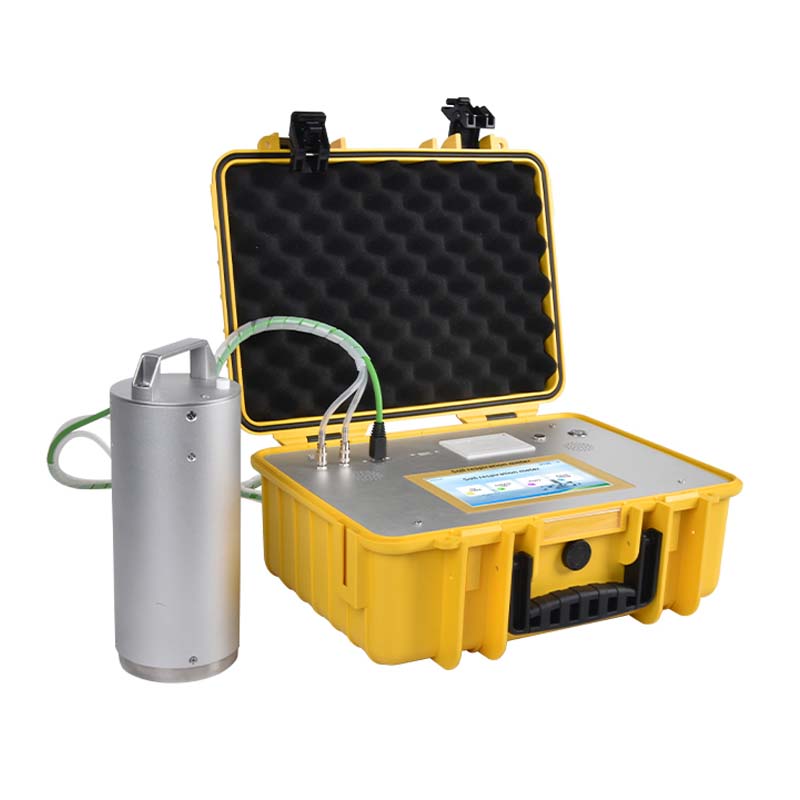The soil respiration measurement system can accurately quantify the process of soil releasing CO₂ into the atmosphere, providing key data for carbon cycle research.
The soil respiration measurement system adopts the dynamic air chamber measurement principle. When the system is in operation, a specially designed breathing chamber (with a diameter of 100mm and a height of 180mm) is sealed and covered over the soil surface to create a temporary micro-environment. The built-in high-precision infrared gas analyzer (IRGA) continuously monitors the dynamic changes of CO₂ concentration in the gas chamber at a standard flow rate of 800ml/min (adjustable). Combined with the data from temperature and humidity sensors, it automatically calculates the soil respiration rate (unit: μmol/m²·s) through professional algorithms.

The system realizes multi-parameter synchronous measurement
Gas components: CO₂ (0-5000 PPM), H₂O, N₂O (0-500ppm), CH₄ (0-100ppm
Soil parameters: Moisture (0-100%), temperature (-40-120℃), electrical conductivity (0- 20,000 US /cm)
Environmental parameters: Atmospheric pressure (300-1100hPa), respiration room temperature humidity
Soil respiration measurement systems have been widely applied in ecological research and environmental monitoring fields. In terms of agricultural ecology, the system is used to assess the impact of different tillage methods on soil microbial activity. In global change research, scientists use it to monitor the responses of different ecosystems to global warming. In the field of ecological restoration, this system can quantify the improvement effect of restoration measures on the soil carbon cycle function.
Article address:https://www.soiltesting.cn/news2/48.html






